Source: My UM
Kou Kit Ian, an associate professor from the Department of Mathematics, Faculty of Science and Technology, is not just an expert in maths, but also an expert in making DIY crafts. Over the years, she has made all kinds of DIY crafts, such as handbags, staff ID card strings, coin purses, and pen cases. Whether in research or in DIY projects, she is a perfectionist. ‘I tend to be discontented with the status quo, and I like challenges,’ she says. Perhaps it is this inner hunger for change and challenge that prompts her to make continuous improvements in both her research and DIY projects.
Finding a Sense of Fulfilment from DIY Projects
Prof Kou was the first UM-trained doctor of maths. She is also the only female associate professor in the Department of Mathematics. Currently, she is studying how to apply mathematical technology to image analysis. If successful, the technology can realise image dissection at a deep level, which can be used in biological testing and medical image analysis. Kou is a longtime employee at UM. Earlier, she received the Long Service Award for her 20 years of service to the university. If there were an award for longtime DIY’ers, she would certainly receive it too, because making DIY crafts is a hobby she has enjoyed for more than 20 years. ‘I developed a strong interest in making DIY crafts in middle school. When I started college, I made my first DIY pen case, which I keep to this day. Now it serves as my sewing kit,’ she says.
Some of her friends think it is a waste of time for a maths professor like her to indulge in frivolous hobbies like making DIY crafts, but she disagrees. ‘When I make DIY crafts, I can design them however I like. It is like building a toy with Lego bricks. It is fun, helps me to de-stress, and gives me a sense of achievement,’ says Kou. ‘And because I enjoy it, I want to keep trying to improve without the fear of failure. It also trains me to focus better and longer. No words can describe the sense of achievement I feel when I look at a DIY craft I made.’
A Way to Show Love
Kou is a curious person who enjoys challenges. Every time she sees something she likes, she feels the itch to try making it herself. Some of the materials she uses for her DIY projects are the used clothes at home.
Many of the DIY crafts were made to address the practical needs of, and express her love for, her family members, whether it’s the pen case she made for her son who couldn’t find a pen case big enough to hold a 20-cm ruler required by the school, or the cloth hair clip she made for her son’s best female friend as a birthday present, or the woolen hat she made for her mother who always had difficulty finding a hat that fit her head. ‘DIY crafts are not always perfect; often they have many flaws. But they show your love and they carry beautiful memories that make the users treasure them more,’ she says. ‘For example, when I gave the DIY pen case to my son, he was very happy. He took it to school and proudly told everyone that it was made by his mother. And my mother always wears the hat I made her in cold weather.’
Kou takes good care of the DIY crafts she made and puts them to maximum use. For example, the handbag with black dots, which she made from an old piece of clothes, has kept her company for many years. She often carries it to lunches and High Table Dinners in the residential college. ‘This handbag has a retro style and is very practical. I can put a small umbrella, a purse, and my staff card in it and carry it to lunch. It also goes well with gowns when I need to attend formal events,’ she says.
Applying Mathematical Knowledge to Everyday Life
Many people think of maths, especially higher maths, as a difficult and arcane subject that doesn’t have many applications in everyday life. They often ask Kou: What is the use of learning maths? But according to Kou, maths is everywhere. It’s a question of whether one can see it. ‘When you understand how to apply maths knowledge to everyday life, your life will be more interesting,’ she says. ‘DIY is a good example of applying maths to everyday life. People who are good at maths tend to learn DIY faster, because learning maths and making DIY crafts both require following steps and logical reasoning, sometimes even reverse thinking, as you need to deconstruct something to understand how to make it from scratch.’
A Perfectionist
Whether in maths or in DIY handicrafts, Kou strives for perfection. ‘Doing research in maths requires you to stand on the shoulders of other established scholars. Similarly, making DIY crafts requires you to continuously improve your skills by learning from other people.’
A fellow in the Stanley Ho East Asia College, Kou loves to share her DIY knowledge with college members. In fact, she has been leading workshops on DIY crafts in the college for many years. In the most recent workshop, she taught the students how to make a Shiba Inu craft with a ball of yarn. In the process, her son gave her many suggestions. Aside from being an excellent teacher, researcher, and DIY’er, Kou also takes good care of her family and health. Every week she plays sports with her family or friends. She believes that to live a fulfilling life, one needs work, family, friends, and health, and it’s important to strike a balance between these different aspects of life.
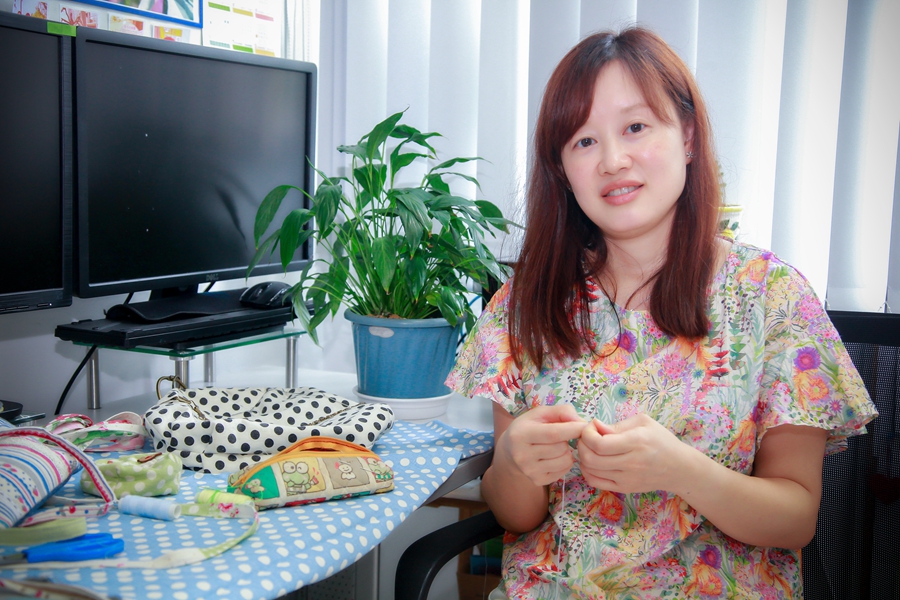
42607-79137
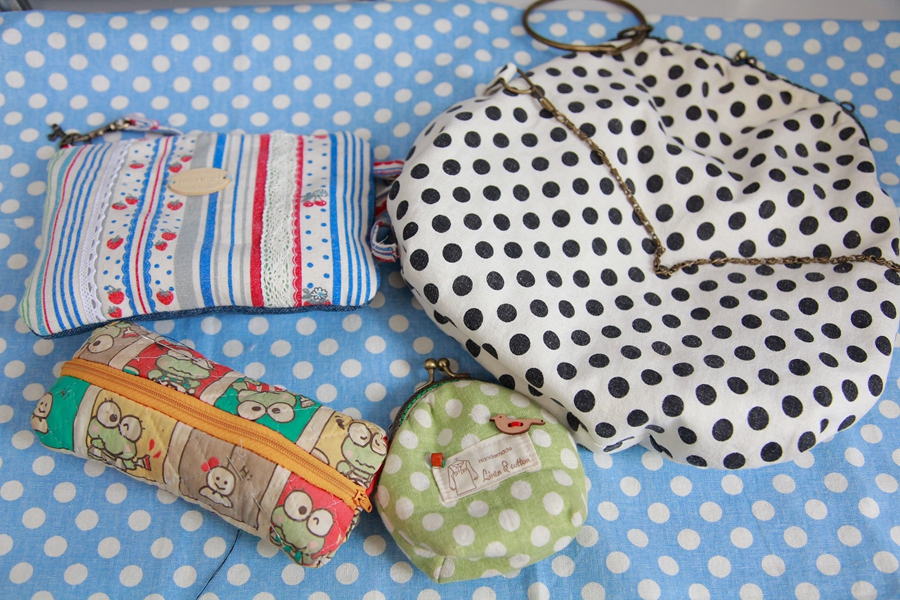
DIY crafts made by Prof Kou
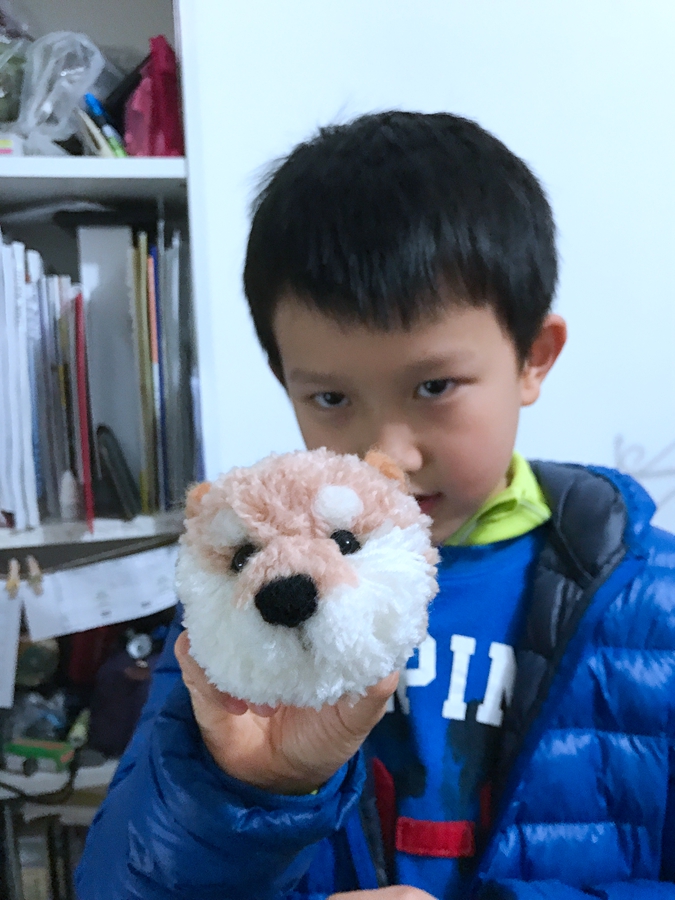
Prof Kou’s son loves this Shiba Inu craft made by his mother
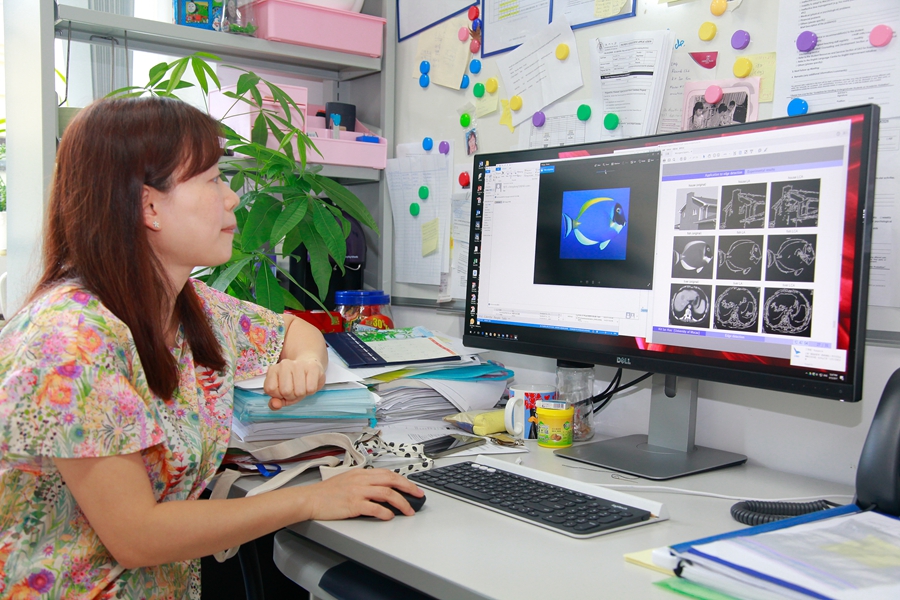
Currently Prof Kou is studying how to apply her research methods to colour image for feature extraction
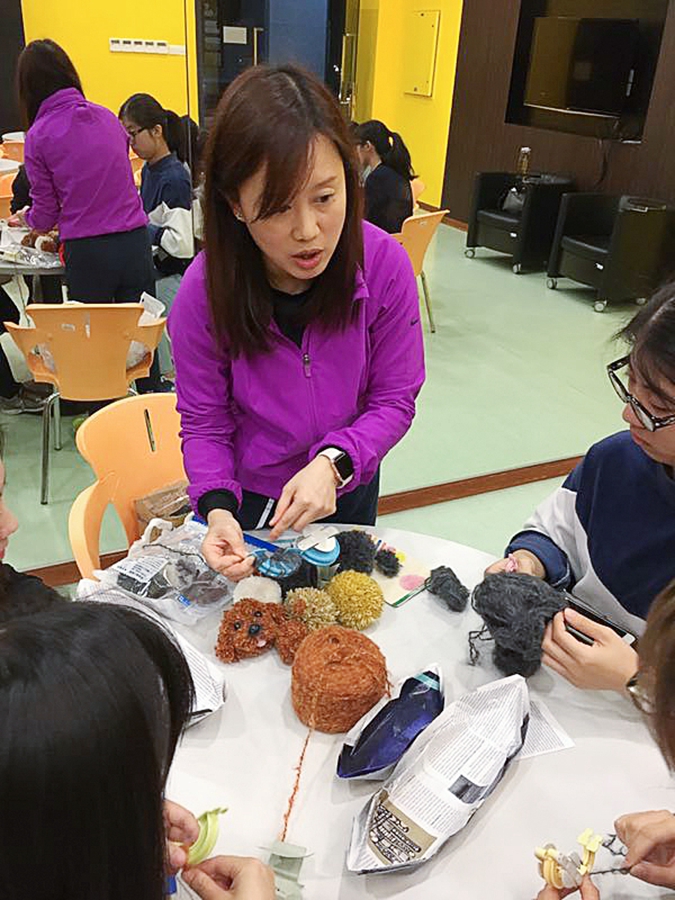
Prof Kou shares her DIY knowledge with college members
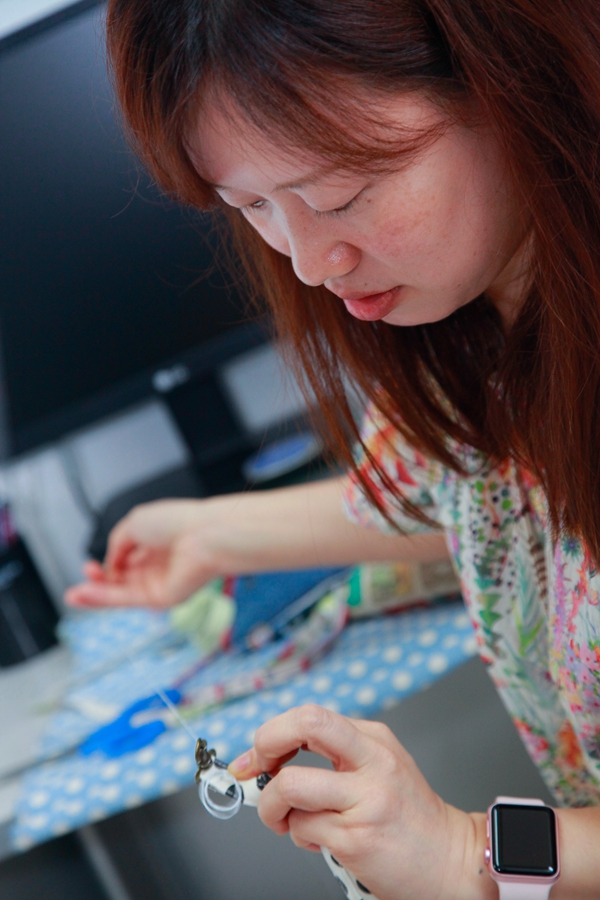
Making DIY crafts is a good example of applying maths to everyday life
